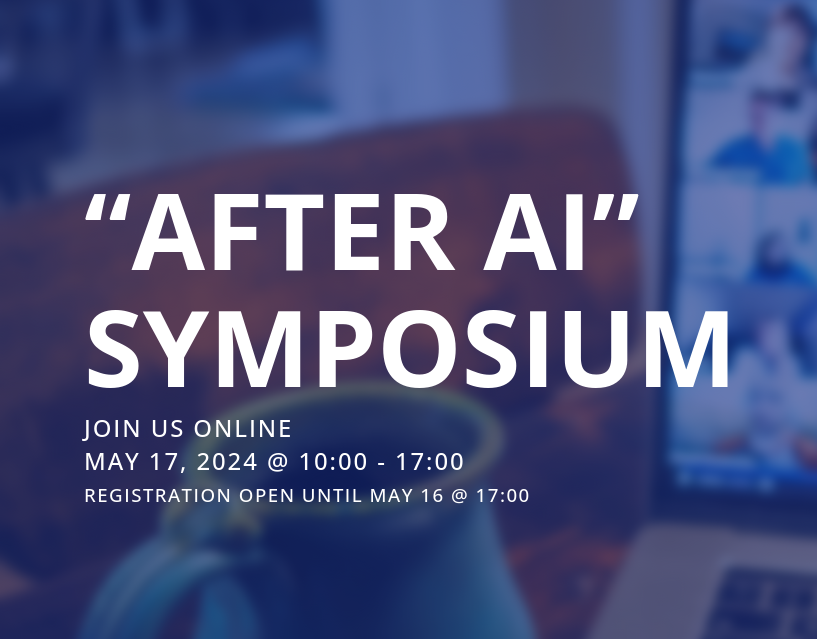Alex McLean and Anu Reddy will be talking on “Algorithmic Patterns after AI” at the online “After AI” symposium, on 17th May 2024. You can register for free and see the rest of the schedule at afteraisymposium.com.
Abstract
In use, the term ‘artificial intelligence’ is often conflated with the idea of the ‘algorithm’. As protesters chant “fuck the algorithm”, AI and algorithms in general have become known as technologies of control; practically unexplainable, yet governing what we read on social media, what we see in search results, and how we are ourselves profiled and assessed.
Will AI tech culture continue to accelerate towards information and environmental overload, or will it hit a conceptual and/or financial brick wall, allowing us to relax back into yet another AI winter? In either case, we propose a post-AI future, based on an alternative history of algorithms as patterns.
Algorithmic patterns are creative, culturally-embedded ways to work beyond our imaginations, where complex and surprising results can result from the combination of simple parts (or rules). Humans have explored algorithmic patterns obsessively, across practices and in many forms, for millennia. This can be seen in ancient practices such as geometric Kolam drawings, the discrete mathematics of textile weaves and braids, or more recent developments such as juggling siteswap patterns, and creative code-based practices such as live coding.
Through our presentation we will introduce Algorithmic Pattern as an emerging, interdisciplinary field of research and practice. We will showcase examples of various algorithmic pattern contributions whose outcomes are deterministic yet unpredictable, as they emerge into great complexity from simplicity. This will include our own work in Kolam drawing and live coding. Through this we will signal a Luddite reclaiming of algorithms as technologies of human craftwork. When AI has exhausted itself, we shall return to human-centric algorithmic patterns, which offers us rich ways of making that are easy to learn but taking lifetimes to explore.
